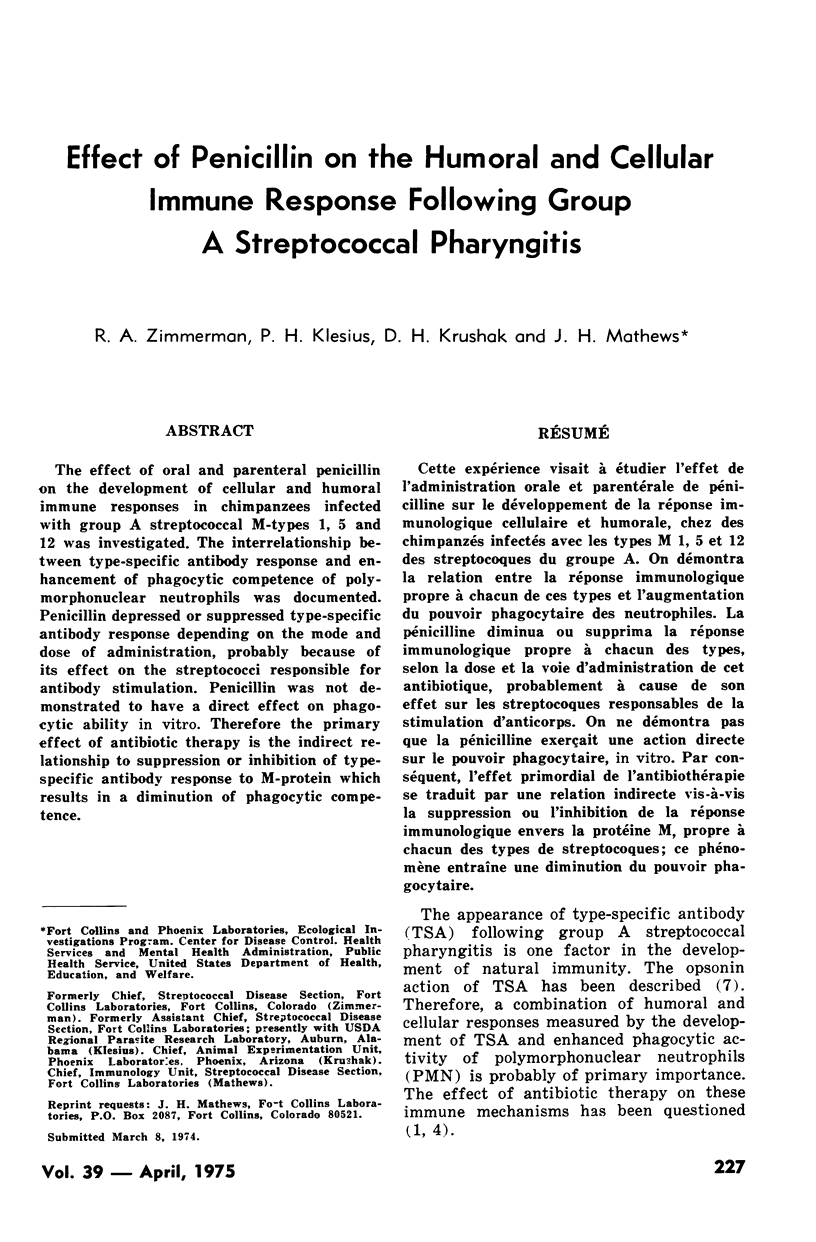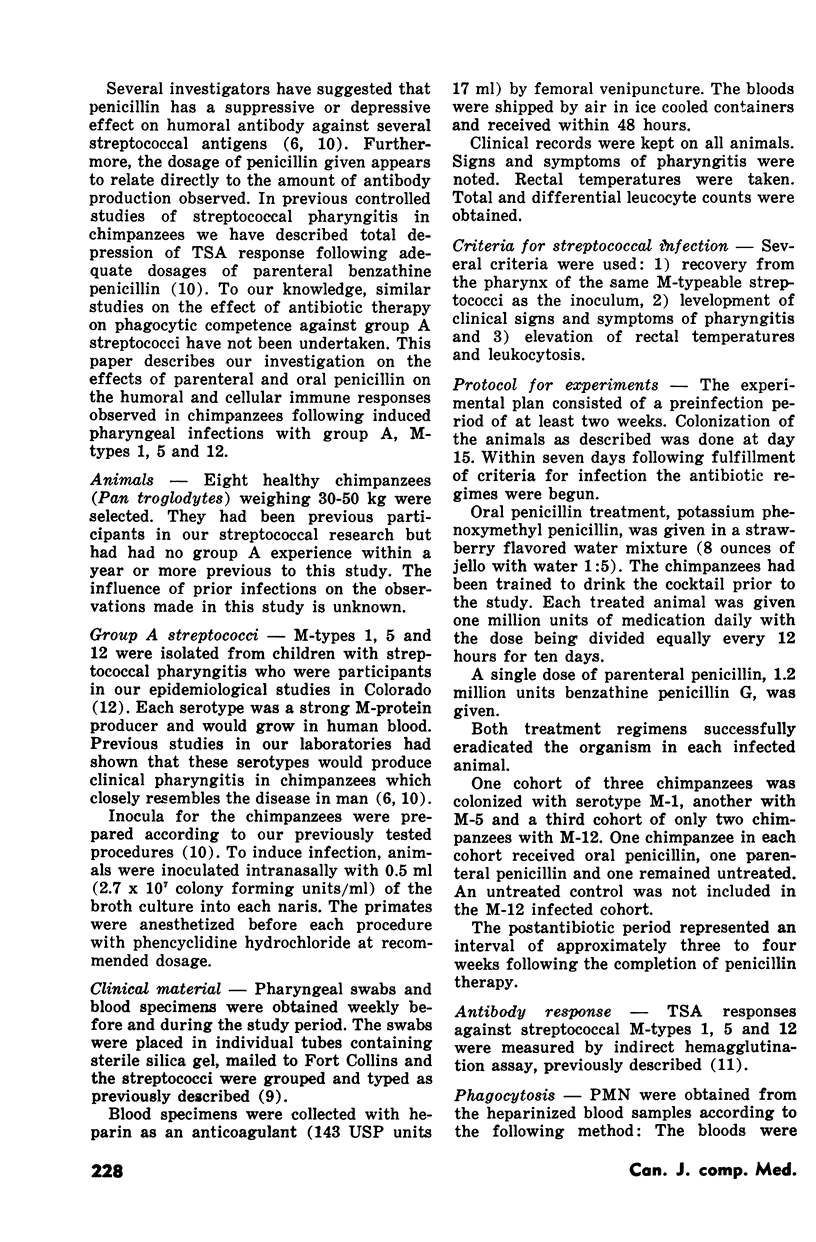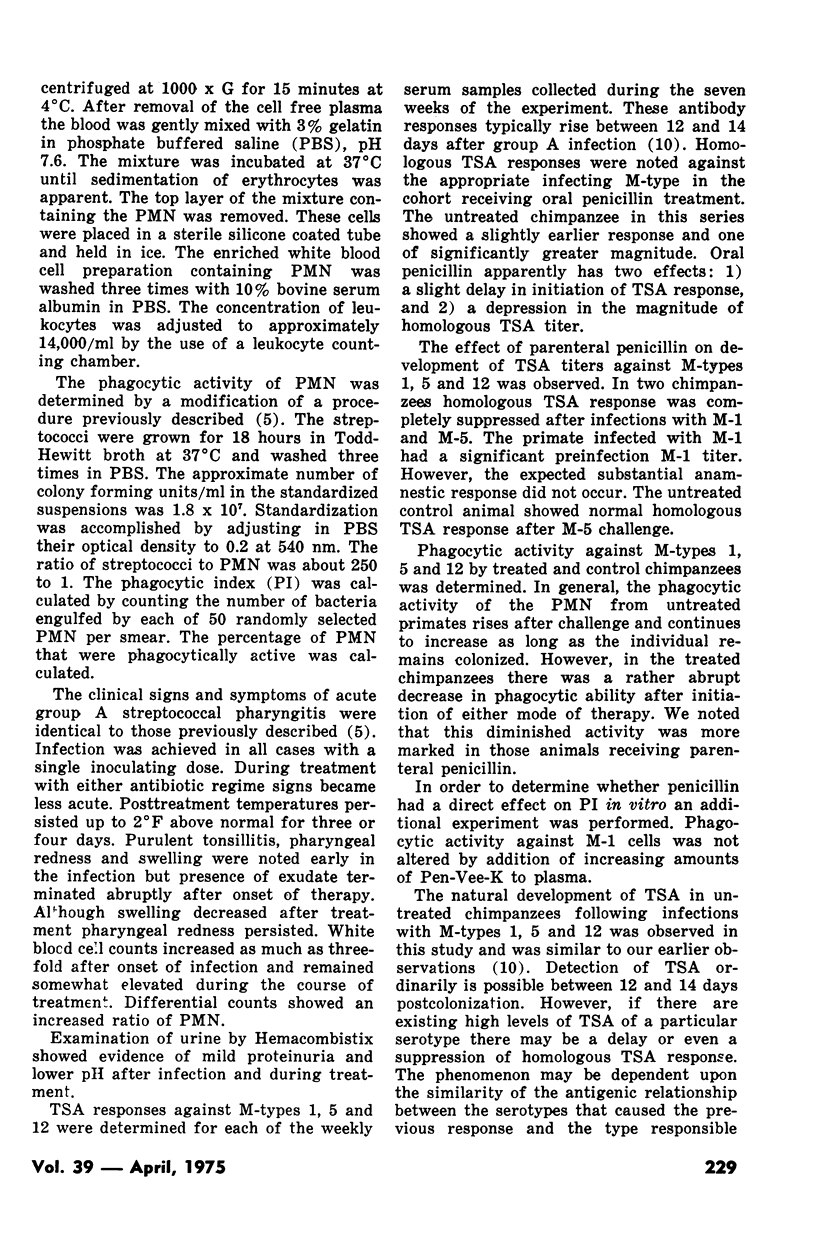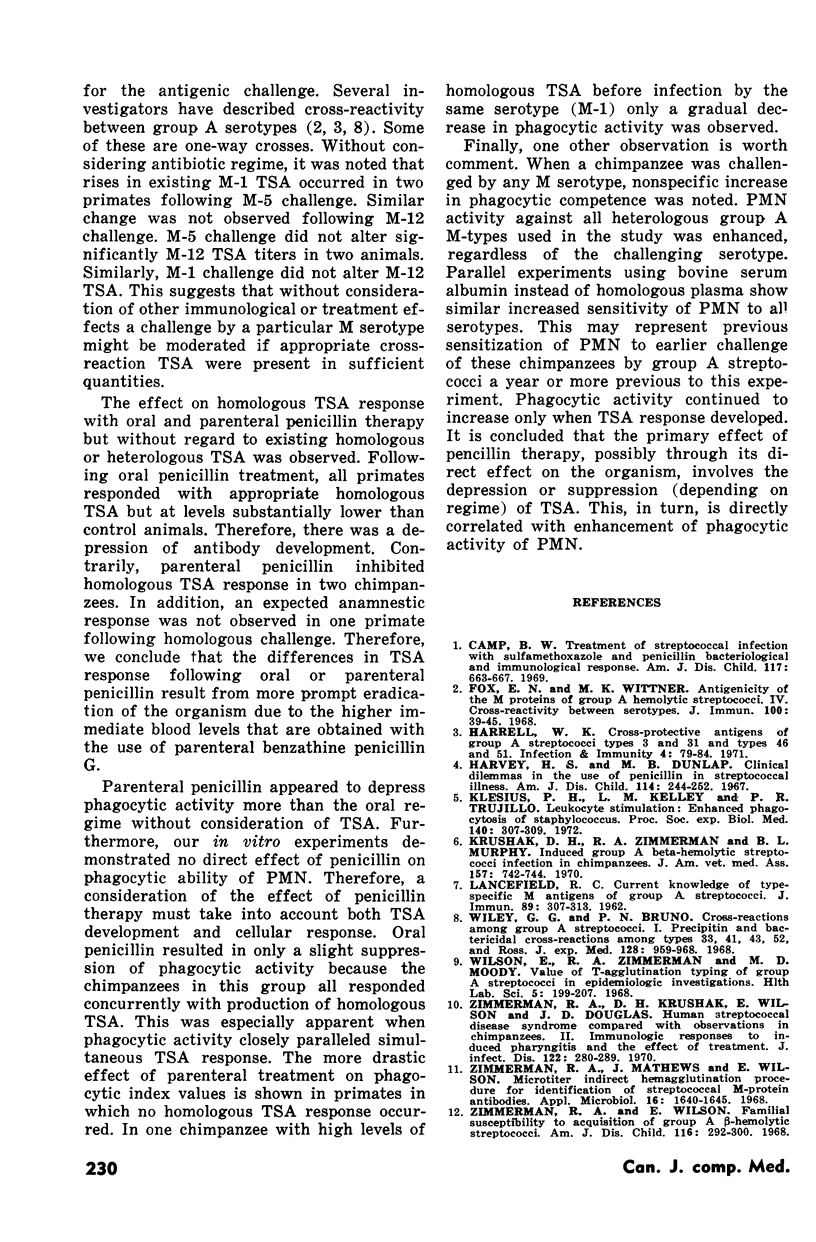Abstract
The effect of oral and parenteral penicillin on the development of cellular and humoral immune responses in chimpanzees infected with group A streptococcal M-types 1, 5 and 12 was investigated. The interrelationship between type-specific antibody response and enhancement of phagocytic competence of polymorphonuclear neutrophils was documented. Penicillin depressed or suppressed type-specific antibody response depending on the mode and dose of administration, probably because of its effect on the streptococci responsible for antibody stimulation. Penicillin was not demonstrated to have a direct effect on phagocytic ability in vitro. Therefore the primary effect of antibiotic therapy is the indirect relationship to suppression or inhibition of type-specific antibody response to M-protein which results in a diminution of phagocytic competence.
Full text
PDF



Selected References
These references are in PubMed. This may not be the complete list of references from this article.
- Camp B. W. Treatment of streptococcal infection with sulfamethoxazole and penicillin. Bacteriological and immunological response. Am J Dis Child. 1969 Jun;117(6):663–667. doi: 10.1001/archpedi.1969.02100030665007. [DOI] [PubMed] [Google Scholar]
- Fox E. N., Wittner M. K. Antigenicity of the M proteins of group A hemolytic streptococci. IV. Cross-reactivity between serotypes. J Immunol. 1968 Jan;100(1):39–45. [PubMed] [Google Scholar]
- Harrell W. K., Ashworth H., Davis R. E., 2nd Cross-protective antigens of group A streptococci types 3 and 31 and types 46 and 51. Infect Immun. 1971 Jul;4(1):79–84. doi: 10.1128/iai.4.1.79-84.1971. [DOI] [PMC free article] [PubMed] [Google Scholar]
- Harvey H. S., Dunlap M. B. Clinical dilemmas in the use of penicillin in streptococcal illness. Am J Dis Child. 1967 Sep;114(3):244–252. doi: 10.1001/archpedi.1967.02090240058002. [DOI] [PubMed] [Google Scholar]
- Klesius P. H., Kelley L. M., Trujillo P. R. Leukocyte stimulation: enhanced phagocytosis of staphylococcus. Proc Soc Exp Biol Med. 1972 May;140(1):307–309. doi: 10.3181/00379727-140-36446. [DOI] [PubMed] [Google Scholar]
- Krushak D. H., Zimmerman R. A., Murphy B. L. Induced group A beta-hemolytic streptococcic infection in chimpanzees. J Am Vet Med Assoc. 1970 Sep 1;157(5):742–744. [PubMed] [Google Scholar]
- LANCEFIELD R. C. Current knowledge of type-specific M antigens of group A streptococci. J Immunol. 1962 Sep;89:307–313. [PubMed] [Google Scholar]
- Wiley G. G., Bruno P. N. Cross-reactions among Group A streptococci. I. Precipitin and bactericidal cross-reactions among types 33, 41, 43, 52, and Ross. J Exp Med. 1968 Nov 1;128(5):959–968. doi: 10.1084/jem.128.5.959. [DOI] [PMC free article] [PubMed] [Google Scholar]
- Wilson E., Zimmerman R. A., Moody M. D. Value of T-agglutination typing of group A streptococci in epidemiologic investigations. Health Lab Sci. 1968 Oct;5(4):199–207. [PubMed] [Google Scholar]
- Zimmerman R. A., Krushak D. H., Wilson E., Douglas J. D. Human streptococcal disease syndrome compared with observations in chimpanzees. II. Immunologic responses to induced pharyngitis and the effect of treatment. J Infect Dis. 1970 Oct;122(4):280–289. doi: 10.1093/infdis/122.4.280. [DOI] [PubMed] [Google Scholar]
- Zimmerman R. A., Mathews J., Wilson E. Microtiter indirect hemagglutination procedure for identification of streptococcal M-protein antibodies. Appl Microbiol. 1968 Nov;16(11):1640–1645. doi: 10.1128/am.16.11.1640-1645.1968. [DOI] [PMC free article] [PubMed] [Google Scholar]
- Zimmerman R. A., Wilson E. Familial susceptibility to acquisition of group A B-hemolytic streptococci. Am J Dis Child. 1968 Sep;116(3):292–300. doi: 10.1001/archpedi.1968.02100020294010. [DOI] [PubMed] [Google Scholar]


